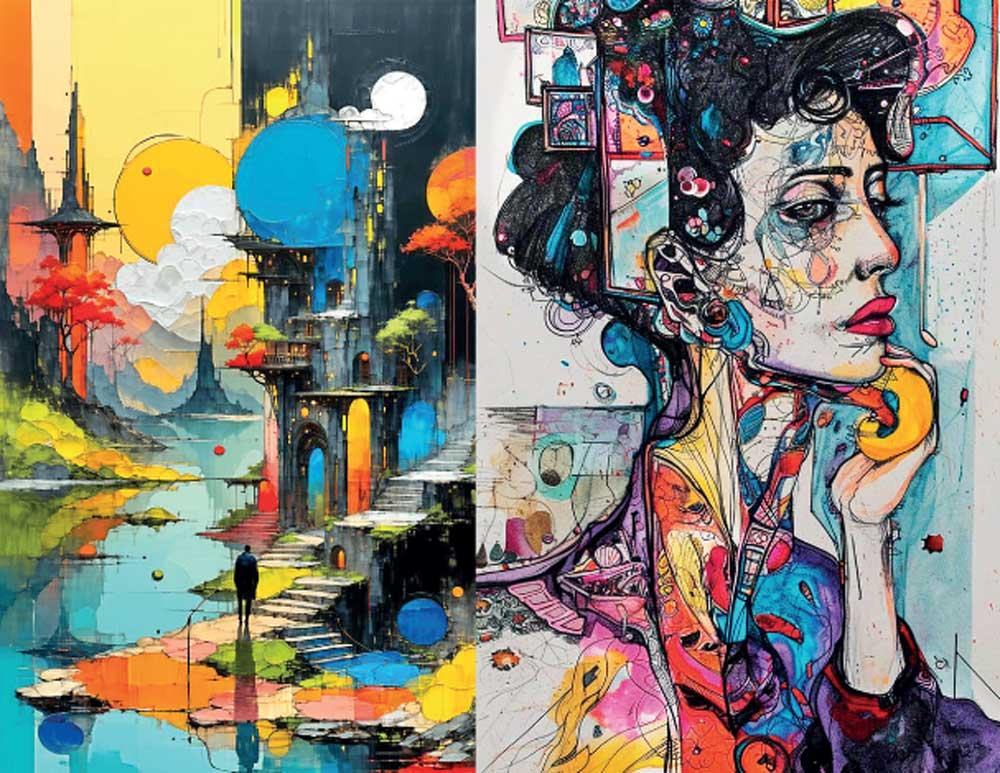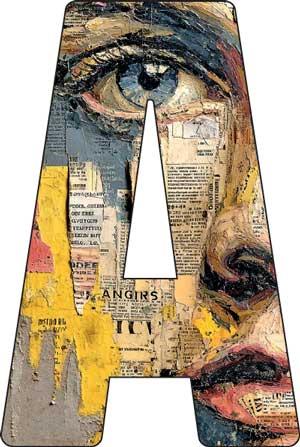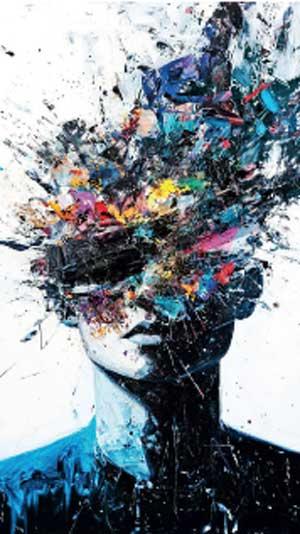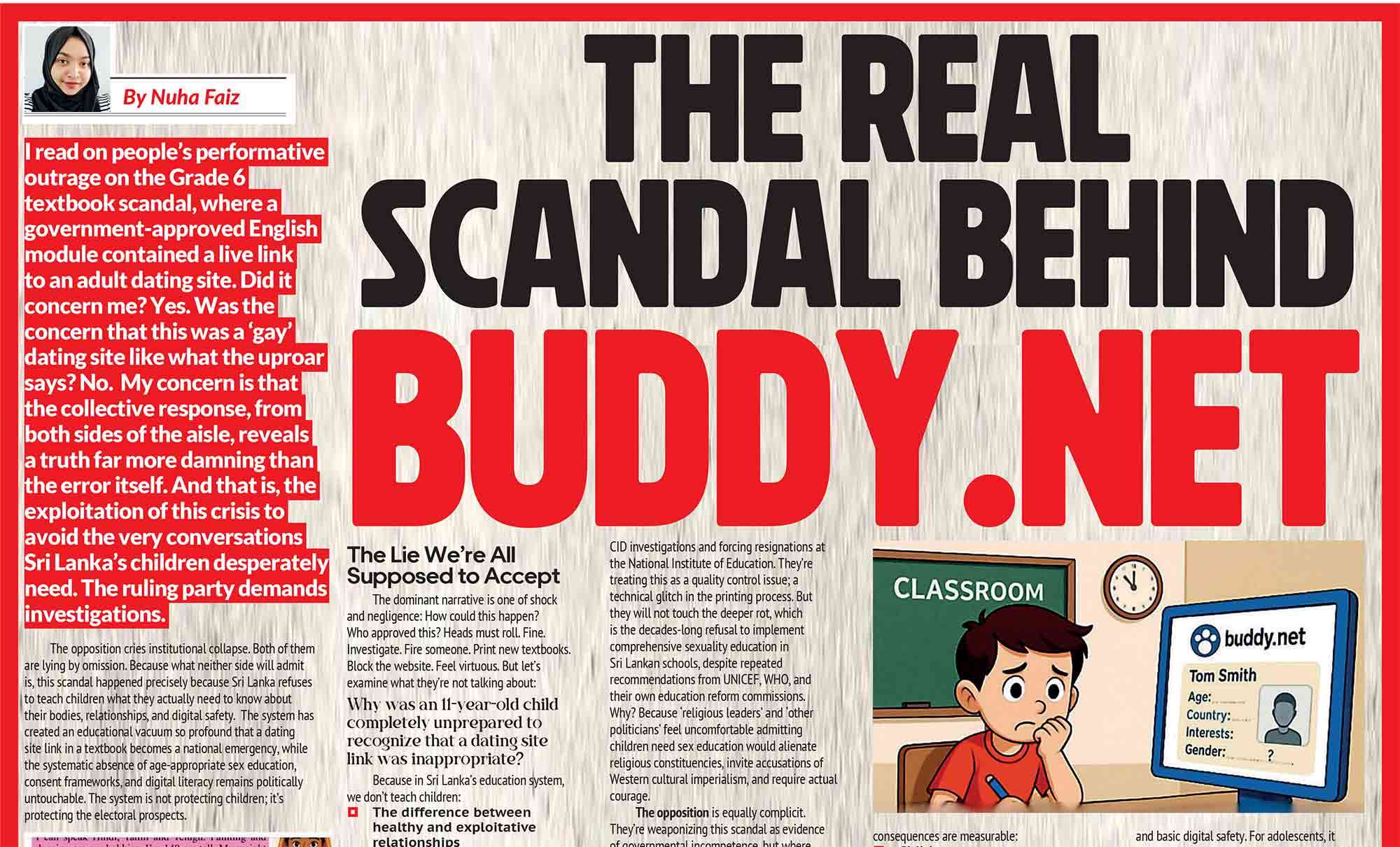
 It feels like everywhere I look; people are losing touch with the things that make them feel alive. When we were kids, everyone wanted to be something creative, a singer, a dancer, an actor, a painter, a designer, or even a princess. We dreamed big, but somewhere between childhood and adulthood, those dreams got replaced with “real jobs.” Suddenly, being an artist isn’t considered a career, it’s a hobby. And honestly, it’s sad to see how something that brings so much joy has become something society looks down on. The arts may be dying, not because people stopped loving them, but because people have stopped believing they’re worth pursuing.
It feels like everywhere I look; people are losing touch with the things that make them feel alive. When we were kids, everyone wanted to be something creative, a singer, a dancer, an actor, a painter, a designer, or even a princess. We dreamed big, but somewhere between childhood and adulthood, those dreams got replaced with “real jobs.” Suddenly, being an artist isn’t considered a career, it’s a hobby. And honestly, it’s sad to see how something that brings so much joy has become something society looks down on. The arts may be dying, not because people stopped loving them, but because people have stopped believing they’re worth pursuing.
Creativity Lives Inside All of Us
Almost everyone has some kind of creative spark. My friends paint, sing, write poetry, sew clothes, or dance in their rooms when nobody’s watching. These things make people happy; they make life colourful and meaningful. But when it comes to making a living, most people don’t even consider turning those passions into careers. Why? Because everyone’s been told the same thing, “You can’t make money doing that.” And maybe it’s true, most art-related jobs aren’t the most stable. Painters might not sell their work for months, dancers and actors often go through years of rejection, and singers can pour their hearts into music that barely gets heard. Even the most talented people struggle. But just because something is hard doesn’t mean it’s not valuable. The problem is that society doesn’t value it enough to make it sustainable.
The Societal View of “Success”
The harsh truth is that most people judge success by titles and pay checks. If someone says they’re becoming a doctor or a lawyer, the reaction is instant respect. But if someone says they want to be a painter or a dancer, people respond with, “That’s nice, but what’s your backup plan?” It’s almost like there’s a social hierarchy of jobs. The technical and academic ones sit at the top, and the creative ones fall far below. Parents and teachers, even when they mean well, tend to push us toward what’s “safe.” No one wants to see their kids struggle, so they encourage careers that come with financial security and stability. But in doing that, they often discourage happiness. It’s incredibly common for people to give up on things they love because they’re afraid of being looked down on. For instance, a girl who used to love acting could end up studying finance because her parents told her acting wasn’t a “real job.” She says she’s fine with it, but everyone can tell she misses performing. That’s the reality for so many young people, trading passion for approval.
The Hard Truth About Growing Up
When you’re twenty, everyone around you is obsessed with “figuring it out.” You’re supposed to choose your major, your career path, your future, all before you really know who you are. And most people don’t choose what they love; they choose what will pay the bills, because the world we live in doesn’t make it easy to survive otherwise. It’s a scary choice, do you follow your dreams and risk struggling financially, or do you give them up and live comfortably but never feel fulfilled? There’s no easy answer, and that’s exactly why so many young people feel lost. We grow up hearing “Do what makes you happy,” but the moment what makes you happy doesn’t make money, the message changes to “Be realistic.” The result is a generation of people working jobs they don’t care about, living lives that don’t excite them. You can feel it, the lack of passion, the burnout, the silent frustration. People wake up, go to work, count the hours until they can go home, and repeat. It’s no wonder so many of us feel disconnected and unmotivated.
Art Still Matters
What’s ironic is that even people who dismiss the arts depend on them every single day. Every song you listen to, every show you binge, every outfit design, every movie that makes you cry, it all comes from someone’s creative work. The arts shape how we think, feel, and understand the world. They give life meaning. But because they don’t make money, they’re often pushed aside as “unimportant.” I think part of the reason art feels like it’s dying is because we’ve built a society that rewards efficiency over creativity. We want fast results, clear outcomes, and measurable success, but art doesn’t work like that. Art takes time and emotion; it takes patience and risk. It doesn’t always pay off in cash, but it pays off in connection, something our world desperately needs more of. Yet we keep treating creative subjects like optional extras instead of essential parts of education. We don’t encourage arts programs in schools. We tell kids to dream big but then punish them for doing it.
 The Cost of Playing Safe
The Cost of Playing Safe
It’s heartbreaking to see how unhappy so many people are with their lives. They followed all the “right” steps, got the degree, got the job, started earning money, but they still feel empty because deep down, they know they gave up something they loved. It’s not that being a doctor, lawyer, or engineer isn’t amazing. Those careers are incredibly valuable. The problem is when society acts like those are the only careers that matter. Everyone has different talents, and not everyone is meant to live the same kind of life. The world needs artists just as much as it needs doctors. Some jobs heal the body, while others heal the soul.
What Can We Do?
I don’t think the arts are truly dying, just being smothered by fear and pressure. To bring them back, we have to start valuing creativity again. That means paying artists fairly, supporting small creators, funding arts programs, and most importantly, encouraging people to chase what makes them happy instead of what looks good on paper. We also need to redefine what success means. Success shouldn’t just be about how much money you make; it should be about how alive you feel doing what you do. Maybe the goal isn’t to choose between stability and passion, but to find a balance between the two, to make room for creativity even if it isn’t your main job. At the end of the day, life is short. It’s far too short to spend all your time doing something that doesn’t make you happy. The arts are dying because we’re letting them, letting fear, money, and judgment convince us that creativity isn’t practical. But imagine a world without music, without films, without fashion, without stories. It would be empty. What we need to remember is that we don’t just live to survive, we also need to feel alive, and the arts, more than anything else, make that possible.











